Filter by
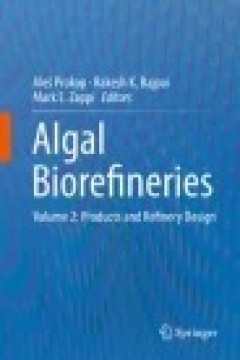
Algal Biorefineries: Volume 2: Products and Refinery Design
Algae offer potential to produce renewable chemicals and fuels using solar energy and carbon dioxide from atmosphere or in flue gases while simultaneously reducing the generation of greenhouse gases. Since these can be grown on marginal lands with micronutrients and macronutrients often present in waste streams, algae-based chemicals and fuels do not compete with foods. Still large-scale produc…
- Edition
- Ed. 1
- ISBN/ISSN
- 978-3-319-20200-6
- Collation
- VIII, 557
- Series Title
- -
- Call Number
- 576 ALG a

Heat Shock Protein-Based Therapies
The book Heat Shock Protein-Based Therapies provides the most up-to-date review on new heat shock protein-based mechanisms used in the therapy and treatment of various human disorders and diseases, including cancer, muscular atrophy, neurodegenerative disorders (Alzheimer's Disease, Multiple Sclerosis) and infectious diseases (HIV, periodontal disease). Written by leaders in the field of heat s…
- Edition
- -
- ISBN/ISSN
- 978-3-319-17210-1
- Collation
- XVI, 385
- Series Title
- -
- Call Number
- 610 HEA
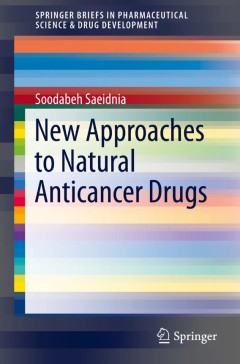
New Approaches to Natural Anticancer Drugs
This book provides an up-to-date review of recently identified natural anti-tumor compounds from various natural origins including plants, fungi, endophytic fungi and marine organisms. It also includes discussion of new areas such as biotechnology and nanoparticles. Chapters explain the challenges and developments in anti-cancer drug discovery approaches, traditional remedies for prevention an…
- Edition
- 1
- ISBN/ISSN
- 978-3-319-14026-1
- Collation
- XI, 106
- Series Title
- SpringerBriefs in Pharmaceutical Science & Drug Development
- Call Number
- -
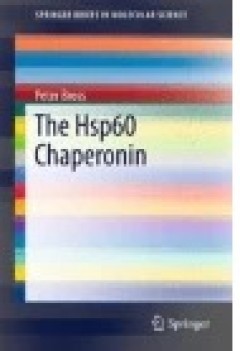
The Hsp60 Chaperonin
In this unique overview of the Hsp60 chaperonin, Peter Bross addresses molecular biologists, medical research scientists and individuals interested in molecular or general biology. First, Bross discusses the basics of the Hsp60 chaperonin in terms of its structure and the molecular mechanisms determining its function. Second, the author highlights the multiple roles of Hsp60 for cellular system…
- Edition
- -
- ISBN/ISSN
- 978-3-319-26088-4
- Collation
- XV, 85
- Series Title
- SpringerBriefs in Molecular Science
- Call Number
- -
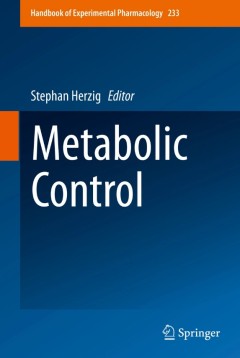
Metabolic Control
Stephan Herzig obtained his PhD from the University of Göttingen, Germany, in 1999. Supported by the German Research Foundation DFG he then joined the Salk Institute for Biological Studies, La Jolla, CA, for his postdoctoral training. In 2004, he established an Emmy-Noether and Marie Curie Junior Research Group at the German Cancer Research Center (DKFZ) in Heidelberg, Germany. He became Head …
- Edition
- 1
- ISBN/ISSN
- 978-3-319-29804-7
- Collation
- VIII, 469
- Series Title
- -
- Call Number
- -
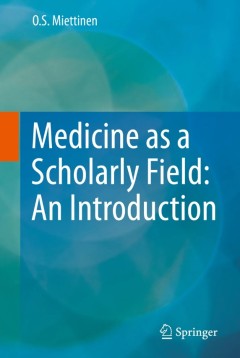
Medicine as a Scholarly Field: An Introduction
This book exposes, and fills, a notable void in the educational content generally covered in modern schools of medicine. It provides an introduction to the field at large in terms of content that is relevant for each of the specialties and subspecialties of medicine; and to this end, it addresses the modern counterpart of the Hippocratic philosophy that was at the root of the genesis of modern …
- Edition
- 1
- ISBN/ISSN
- 978-3-319-19011-2
- Collation
- XVI, 136
- Series Title
- Medicine as a Scholarly Field: An Introduction
- Call Number
- -
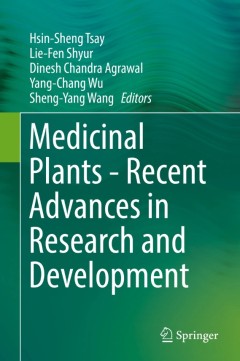
Medicinal Plants - Recent Advances in Research and Development
Since ancient times, plants have been used as a prime natural source of alternative medicines and have played an important role in our lives. The old tradition of medicinal plant application has turned into a highly profitable business in the global market, resulting in the release of a large number of herbal products. People have tried to find different sources of medicines to alleviate pain a…
- Edition
- 1
- ISBN/ISSN
- 978-981-10-1084-2
- Collation
- XXIII, 491
- Series Title
- -
- Call Number
- -
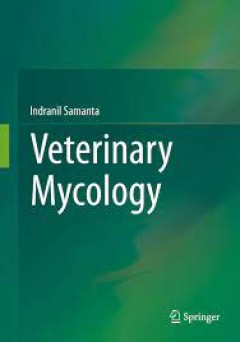
Veterinary Mycology
This book is a comprehensive overview of the fungi that are clinically relevant for animals and humans. It is divided in three major parts: the first part comprises the history of veterinary and medical mycology, general aspects of morphology, growth, nutrition, reproduction and classification of fungi. In the second part, the etiologic agents of cutaneous, subcutaneous and systemic mycoses are…
- Edition
- -
- ISBN/ISSN
- 978-81-322-2280-4
- Collation
- XIX, 179
- Series Title
- -
- Call Number
- -
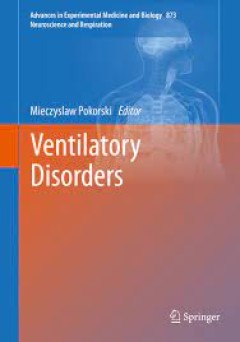
Ventilatory Disorders
Respiratory function is a major determinant of the overall quality of health and well-being of an individual. This book runs the gamut of chapters devoted to chronic cough-related conditions in children and adults, health care quality and safety, environmental pollution health effects, efficiency of therapeutic approaches and a mutual dependence of respiratory and non-respiratory illnesses. An …
- Edition
- -
- ISBN/ISSN
- 978-3-319-20194-8
- Collation
- X, 110
- Series Title
- -
- Call Number
- -
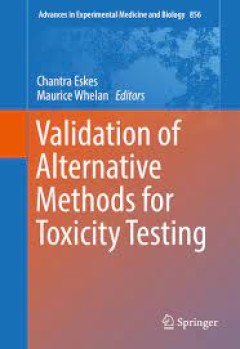
Validation of Alternative Methods for Toxicity Testing
This book provides information on best practices and new thinking regarding the validation of alternative methods for toxicity testing. It covers the validation of experimental and computational methods and integrated approaches to testing and assessment. Validation strategies are discussed for methods employing the latest technologies such as tissue-on-a-chip systems, stem cells and transcript…
- Edition
- -
- ISBN/ISSN
- 978-3-319-33826-2
- Collation
- XX, 407
- Series Title
- -
- Call Number
- -
 Computer Science, Information & General Works
Computer Science, Information & General Works  Philosophy & Psychology
Philosophy & Psychology  Religion
Religion  Social Sciences
Social Sciences  Language
Language  Pure Science
Pure Science  Applied Sciences
Applied Sciences  Art & Recreation
Art & Recreation  Literature
Literature  History & Geography
History & Geography